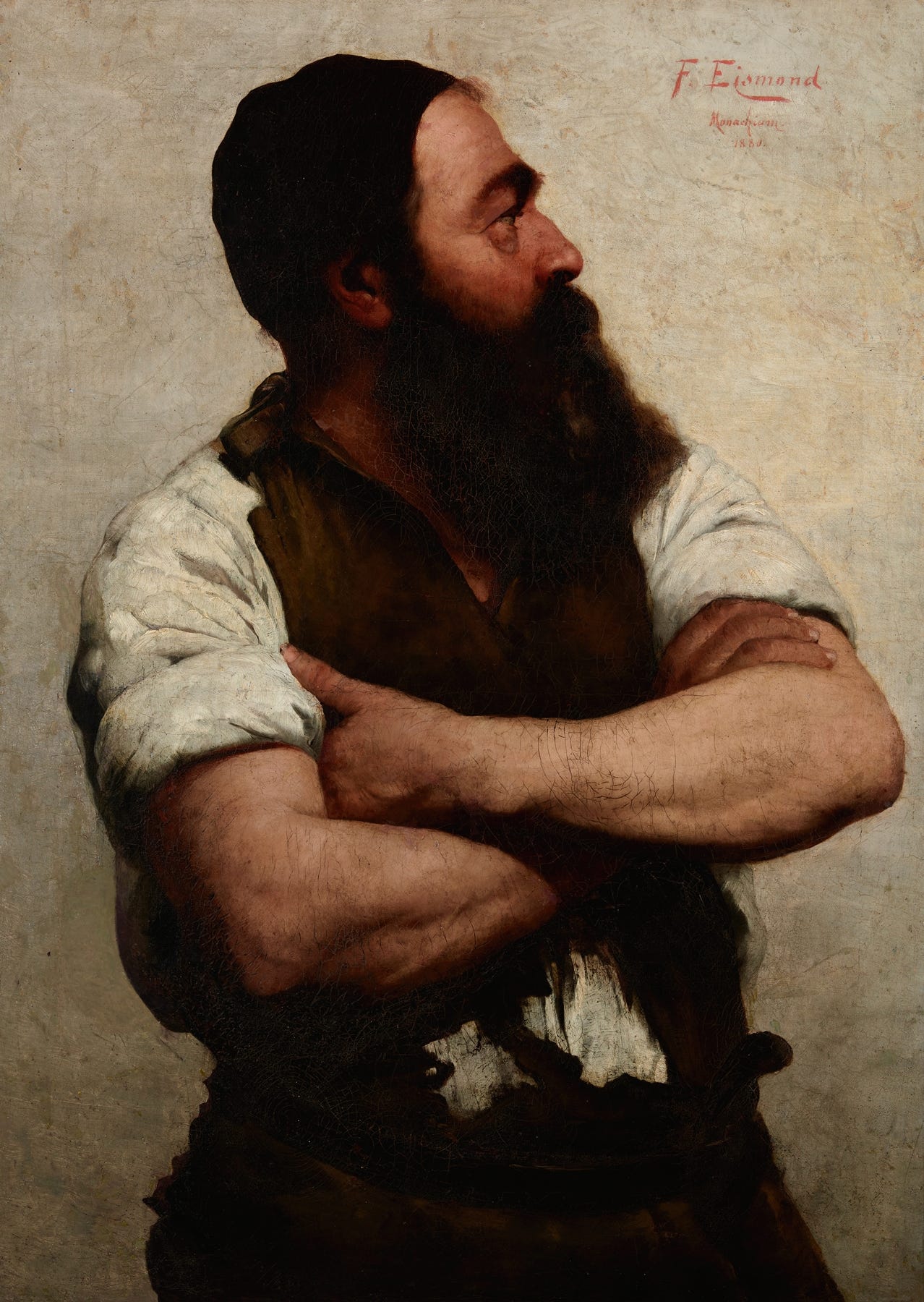Labor is a fundamental part of the human experience. When the Lord created the Garden of Eden he formed Adam with the purpose "to work and to keep it". In my estimation this "working and keeping" would be one facet of fulfilling the command that God spoke to Adam saying
"Be fruitful and multiply and fill the earth and subdue it, and have dominion over the fish of the sea and over the birds of the heavens and over every living thing that moves on the earth." - Gen 1:28 ESV
Labor would have been a requirement for Adam to be obedient to God's command before the fall. Many people functionally view labor as a product of the curse, rather than a creational good marred by the curse. Scripture takes a consistently high view of labor.1
The Village Blacksmith gives artistic expression to this basic premise. Sometimes truth described in prose will seem unsightly without proper context. For example the statement "Labor is a creational good" might seem counterintuitive to a young adult raised in a slothful culture. This same truth can be communicated, often times more effectively, in an artistic expression that allows for greater intuitive context. In the case of "The Village Blacksmith" this context comes in the form of aspirational scenes from The Blacksmith's life, illustrating the rewards he experiences from the fruit of his labor. Truly The Blacksmith can attest to the Preacher’s words - the sleep of the laborer is sweet2.
This poem shows the wide range of forms that benevolent masculinity embodies. The Blacksmith lives a life of depth. He is an honest, hard-working man, who holds no debt and is constant in his labor. He sleeps well. He worships with his children and rejoices for them. He toils, rejoices, sorrows. He lives a life to be desired.
The Village Blacksmith
Under a spreading chestnut tree
The village smithy stands;
The Smith, a mighty man is he,
With large and sinewy hands;
And the muscles of his brawny arms
Are strong as iron bands.
His hair is crisp, and black, and long,
His face is like the tan;
His brow is wet with honest sweat,
He earns whate'er he can
And looks the whole world in the face
For he owes not any man.
Week in, week out, from morn till night,
You can hear his bellows blow;
You can hear him swing his heavy sledge,
With measured beat and slow,
Like a sexton ringing the village bell,
When the evening sun is low.
And children coming home from school
Look in at the open door;
They love to see the flaming furge,
And hear the bellows roar,
And catch the burning sparks that fly
Like chaff from a threshing floor.
He goes on Sunday to the church
and sits among his boys;
He hears the parson pray and preach.
He hears his daughter's voice
singing in the village choir,
And it makes his heart rejoice.
It sounds to him like her mother's voice,
Singing in Paradise!
He needs must think of her once more,
How in the grave she lies;
And with his hard, rough hand he wipes
A tear out of his eyes.
Toiling,--rejoicing,--sorrowing,
Onward through life he goes;
Each morning sees some task begin,
Each evening sees it close;
Something attempted, something done,
Has earned a night's repose.
Thanks, thanks to thee, my worthy friend
For the lesson thou hast taught!
Thus at the flaming forge of life
Our fortunes must be wrought;
Thus on its sounding anvil shaped
Each burning deed and thought!
Two footnotes -
I have trouble with the last stanza. After much re-reading it never ceases to feel like a non-sequitur that undercuts many of the points Longfellow seems to make in the stanzas above. If you have any insight, I would love to hear it. Alas.
Longfellow gave us a lot of good poetry, but was a committed Unitarian
Exodus 20:8-11 | Ephesians 4:28 | 1 Thessalonians 4:11 | 2 Thessalonians 3:7-13 | Proverbs 14:23 to name a few
Ecclesiastes 5:12




